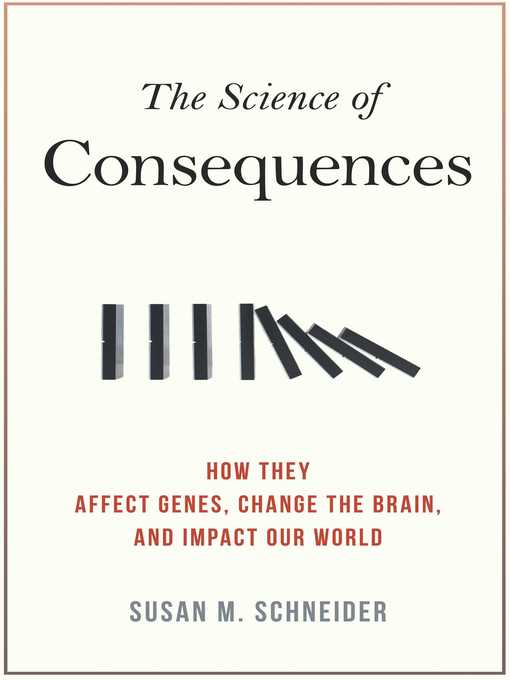
The Science of Consequences
How They Affect Genes, Change the Brain, and Impact Our World
کتاب های مرتبط
- اطلاعات
- نقد و بررسی
- دیدگاه کاربران
نقد و بررسی

August 13, 2012
Schneider, a psychologist and protégé of B.F. Skinner, takes a wide-ranging approach to the topic of how reinforcing and punishing feedback from the environment shapes behavior and directs learning, from the trainability of light-avoidant planaria to the complex machinations of human politics. Citing a diverse collection of behavioral, biological, and mathematical modeling studies, Schneider groups many topics regarding learning and behavior under the rubric of “science of consequences,” including epigenetics, behavioral shaping, neuroplasticity, classical conditioning, and observational learning. She details the kinds of things that are most rewarding across species such as variety in the environment, attention from others, and a sense of control. Schneider highlights the reward styles that research shows are most effective (e.g., immediate rather than delayed results) and then applies them to practical approaches to training pets, educating children, changing bad habits, and improving our culture. Though the writing can be jumpy and rambling at times, and individuals in the fields discussed might find Schneider’s syncretic approach oversimplified, this big-picture analysis is a good reminder that rewards are powerful and no behavior is without consequences and the ability to change us. Illus. Agent: Laurie Abkemeier, DeFiore and Co..

November 1, 2012
Behaviorism often brings to mind Pavlov's dogs, conditioned to salivate when they heard a bell, or B.F. Skinner's rats, who learned to pull a lever to get food. These experiments are fascinating to study and show just how powerful rewards and consequences in general can be in modifying behavior. Here Schneider (biopsychology, Univ. of the Pacific) goes beyond these classic studies to present breakthrough research in behavior analysis, such as the use of microwires in the brain to move objects by thoughts only. VERDICT Schneider, a friend of Skinner, relies more on examples than scientific definitions to explain concepts. This makes for an interesting but at times confusing read for nonscientific readers, as many ideas are not clearly explained. Recommended for those already familiar with the major concepts in behavioral science.--Maryse Breton, Bibliotheque et Archives nationales du Quebec, Montreal, Canada
Copyright 2012 Library Journal, LLC Used with permission.

























دیدگاه کاربران